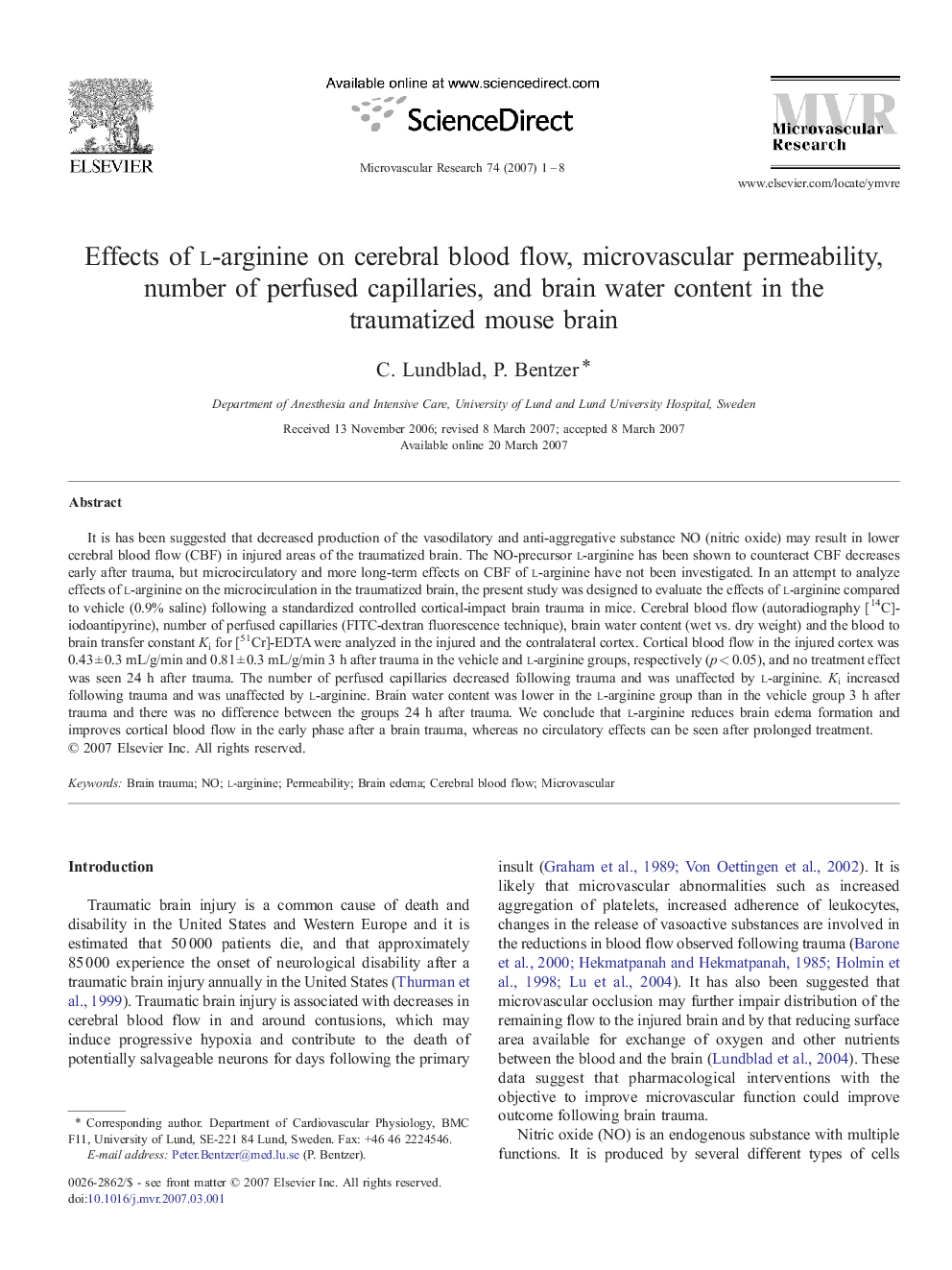| کد مقاله | کد نشریه | سال انتشار | مقاله انگلیسی | نسخه تمام متن |
|---|---|---|---|---|
| 1995324 | 1064962 | 2007 | 8 صفحه PDF | دانلود رایگان |

It is has been suggested that decreased production of the vasodilatory and anti-aggregative substance NO (nitric oxide) may result in lower cerebral blood flow (CBF) in injured areas of the traumatized brain. The NO-precursor l-arginine has been shown to counteract CBF decreases early after trauma, but microcirculatory and more long-term effects on CBF of l-arginine have not been investigated. In an attempt to analyze effects of l-arginine on the microcirculation in the traumatized brain, the present study was designed to evaluate the effects of l-arginine compared to vehicle (0.9% saline) following a standardized controlled cortical-impact brain trauma in mice. Cerebral blood flow (autoradiography [14C]-iodoantipyrine), number of perfused capillaries (FITC-dextran fluorescence technique), brain water content (wet vs. dry weight) and the blood to brain transfer constant Ki for [51Cr]-EDTA were analyzed in the injured and the contralateral cortex. Cortical blood flow in the injured cortex was 0.43 ± 0.3 mL/g/min and 0.81 ± 0.3 mL/g/min 3 h after trauma in the vehicle and l-arginine groups, respectively (p < 0.05), and no treatment effect was seen 24 h after trauma. The number of perfused capillaries decreased following trauma and was unaffected by l-arginine. Ki increased following trauma and was unaffected by l-arginine. Brain water content was lower in the l-arginine group than in the vehicle group 3 h after trauma and there was no difference between the groups 24 h after trauma. We conclude that l-arginine reduces brain edema formation and improves cortical blood flow in the early phase after a brain trauma, whereas no circulatory effects can be seen after prolonged treatment.
Journal: Microvascular Research - Volume 74, Issue 1, July 2007, Pages 1–8